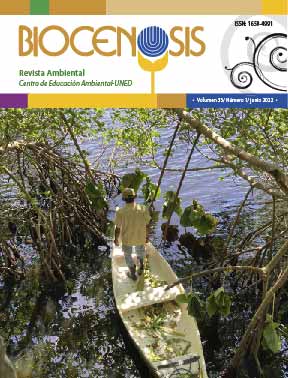Basic Aspects for the Sustainability of the Environmental Education Process in ASADAS
DOI:
https://doi.org/10.22458/rb.v33i1.4284Keywords:
ASADAS, environmental education, hydric resource, program, Sistema Nacional de Áreas de ConservaciónAbstract
This study presents the aspects that are required for a continuous and sustainable environmental education process in the Administrative Associations of Aqueduct and Sanitary Sewer Systems (ASADAS, Acronym in Spanish). In Costa Rica there are more than 2,000 ASADAS, most of which protect water resources through an environmental education program. However, according to the cases studied, there is lack of knowledge of the most important aspects that the program must contain. The objective of this work is to show the basic aspects that must be considered in an environmental education program in order to improve the work to be carried out. The research required documentary analysis and field work to collect information through interviews. The researchers found eight aspects that must be considered for an environmental education process to be successful and sustainable in the ASADAS.
Published
How to Cite
Issue
Section
License

This work is licensed under a Creative Commons Attribution-NonCommercial-ShareAlike 4.0 International License.
